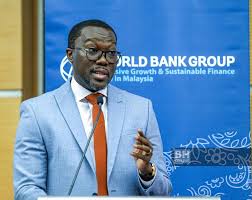The World Bank urges Nigeria to remove barriers to private sector growth, unlocking $20bn in investment and creating over 600,000 jobs
The World Bank has called on the Federal Government to tackle key barriers hindering private sector growth in Nigeria, stating that strategic reforms could unlock over $20 billion in investments and generate more than 600,000 jobs.

Speaking at the Country Private Sector Diagnostic and Stakeholder Engagement in Abuja, the World Bank’s Country Director for Nigeria, Dr Ndiame Diop, highlighted Nigeria’s economic potential despite ongoing challenges.
He noted that while Nigeria remains Africa’s largest economy, it attracts significantly less foreign direct investment (FDI) than countries like Indonesia and South Africa.

“Despite the challenges, Nigeria receives very little FDI compared to its potential,” Diop stated. He stressed that with the right reforms, the economy could experience significant growth.
The World Bank identified four critical sectors—ICT, agribusiness, solar energy, and pharmaceuticals—that, if reformed, could attract substantial investment:
– **ICT:** $4bn investment potential, 200,000 new jobs
– **Agribusiness:** $6bn investment potential, 275,000 new jobs
– **Solar energy:** $8.5bn investment potential, 129,000 new jobs
– **Pharmaceuticals:** $1.6bn investment potential, 30,000 new jobs
Diop pointed out that issues such as high and unpredictable right-of-way fees, levies, and informal charges make broadband rollout in Nigeria expensive, accounting for 30–70% of total costs.
Addressing these inefficiencies, he said, would attract significant investment in ICT infrastructure.
Similarly, agribusiness reforms could boost local food production, solar energy investments could expand electricity access, and improvements in pharmaceutical regulations could enhance local drug manufacturing.
Diop emphasised that now is the ideal time for these reforms, citing Nigeria’s recent economic policies aimed at stabilising the macroeconomic environment.
“With macro stability, improved exchange rate management, and greater FX availability, the investment climate is already improving. Now is the time to leverage this by implementing sector-specific reforms,” he said.
The World Bank, in collaboration with the International Finance Corporation (IFC) and other partners, is working on initiatives to co-finance broadband expansion and infrastructure development.
Minister of Finance and Coordinating Minister of the Economy, Wale Edun, welcomed the World Bank’s recommendations and reaffirmed Nigeria’s commitment to strengthening private sector participation.
He highlighted previous successful partnerships with the IFC, including $1.2bn in financing for Indorama’s fertiliser expansion and $70m for SME funding through First City Monument Bank.









